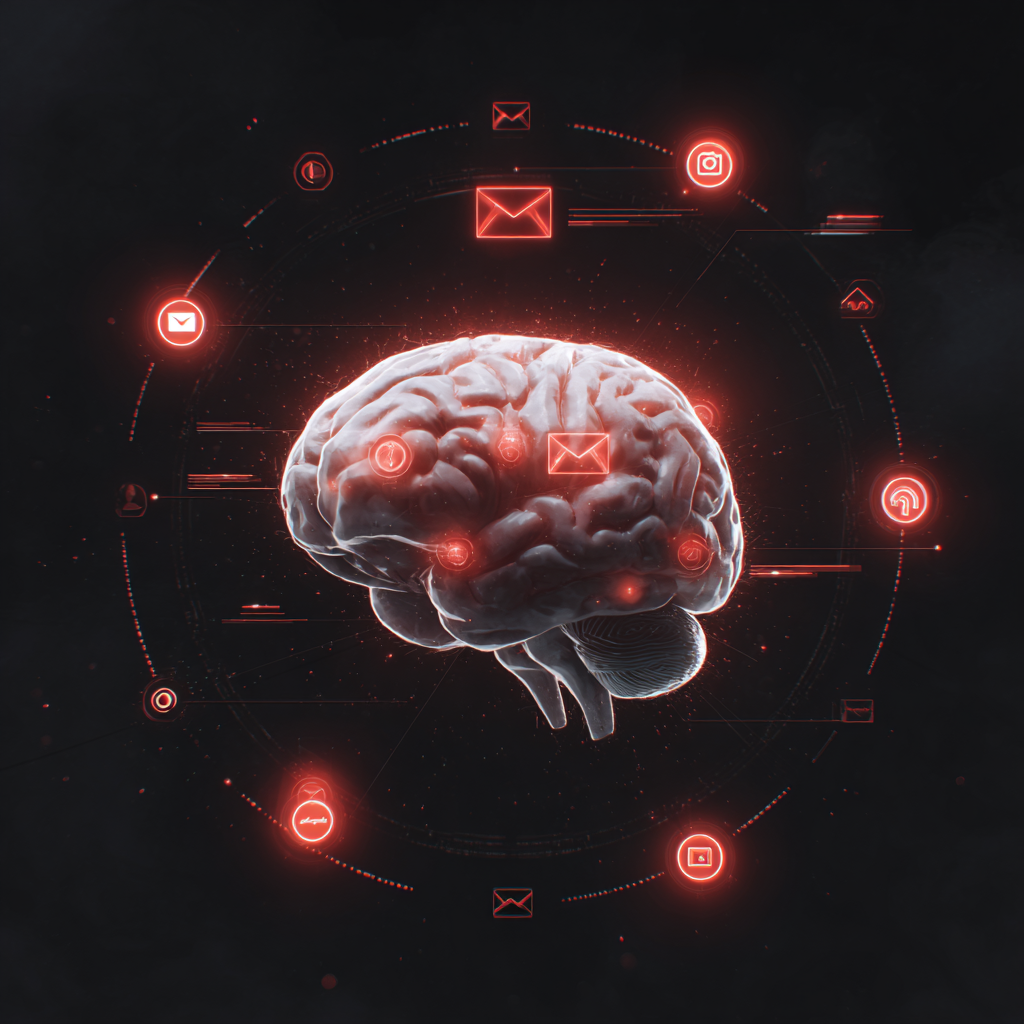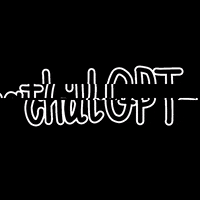Arzenic
Kraken
- Joined
- Jan 22, 2025
- Posts
- 3,452
- Reputation
- 10,174
___________________________________________________________________________________________________
The Ultimate Guide To Fix Your shitty Attention Span
_______________
In-Depth Guide to Rebuild Your Focus
___________________________________________________________________________________________________
Table of Contents
Why Your Focus Feels Broken
Start With Clear Intentions
Let Distractions Pass Without Wrestling Them
Manage Temptations Gradually
Get Emotionally Invested in Your Work
Break Big Tasks Into Smaller Ones
Be Intentional With Media
Train Your Brain Like a Muscle
Master Weak Thoughts
Turn Fear Into Power
Build Mental Walls Against Negativity
Create a Warrior Mindset
Quick Manual: Fixing Your Attention Span
___________________________________________________________________________________________________
Why Your Focus Feels Broken
You sit down to read, study, or work, and within minutes your hand is reaching for your phone. A notification, a thought about something else you’d rather be doing, or just plain boredom pulls you away. Suddenly, an hour’s gone and you’re deep into YouTube, TikTok, or .org.
Sound familiar? You’re not broken. Your attention span isn’t gone forever. What’s happening is that modern life has trained your brain to expect constant stimulation. Quick hits of dopamine from scrolling make sustained focus feel unnatural.
But here’s the good news: attention is like a muscle. You can strengthen it with the right training. You won’t ever achieve perfect, unbroken focus - that doesn’t exist - but you can get a lot better.

________ ______________________________________________ ________
Start With Clear Intentions
Most distractions sneak in because you never clarified what you meant to do in the first place. You open your laptop to “get some work done,” but that vague plan makes it easy to drift.
Before you start, define your intention in concrete terms:
“I’m writing one page of my essay.”
“I’m studying chapter 3 for 30 minutes.”
“I’m answering three emails only.”
Say it out loud or write it down. When the urge to check your phone comes, pause and ask: “Does this match my intention right now?”
________ ______________________________________________ ________
Let Distractions Pass Without Wrestling Them
Intrusive thoughts will come up. You’ll think about what’s for dinner, a funny video, or a conversation you had. That’s normal. The key is not to chase them.
Treat distractions like cars on the road - you see them pass, but you don’t have to jump in. Sometimes it helps to write the thought down on a notepad (“text John later”) and return to work.
Meditation is a great way to build this skill. Practicing even five minutes a day of noticing your thoughts without reacting strengthens the exact muscle you need to stay focused.
________ ______________________________________________ ________
Manage Temptations Gradually
One reason focus is hard is because we know fun alternatives are only a tap away. Telling yourself “I’ll never check my phone again” doesn’t work. Instead, reduce screen time gradually.
Start by cutting down to 90% of your current usage, then 80%, and so on.
Make your phone less addictive: enable grayscale mode so apps look dull.
Use time limits, but don’t expect perfection - use them as gentle nudges, not absolute bans.
When distractions become less shiny, they stop pulling as hard.
________ ______________________________________________ ________
Get Emotionally Invested in Your Work
You can’t white-knuckle focus forever. The easiest way to lock in is to actually care about what you’re doing. That might sound obvious, but you can engineer it.
Try pairing your task with something that makes it feel bigger than you:
Listen to a soundtrack that matches the “vibe” of the work (epic music for studying, calm piano for reading).
Remind yourself of the “why” behind the task - what bigger goal does it serve?
When you’re absorbed, focus stops being a fight.
________ ______________________________________________ ________
Break Big Tasks Into Smaller Ones
Nothing kills attention faster than overwhelm. Huge, undefined tasks create anxiety and avoidance.
Instead of “write my research paper,” start with:
Open a blank doc.
Write the title.
Draft the introduction.
Tackle one chunk at a time. Focus thrives on clarity and small wins.
________ ______________________________________________ ________
Be Intentional With Media
Short-form content rewires your brain for constant novelty. If all you consume are 10-second clips, sitting through a book or lecture will feel impossible.
Balance it with longer, slower forms of media: podcasts, documentaries, thoughtful YouTube videos, or just silence. Take walks without headphones. Let your mind get used to existing without constant input.
This resets your baseline attention span.
________ ______________________________________________ ________
Train Your Brain Like a Muscle
Mental discipline isn’t just about apps or tricks - it’s about daily training. Just like the body, the mind weakens without exercise. Strong focus comes from consistent mental workouts:
Practice silence for a few minutes each day.
Read challenging material.
Replace weak, negative thoughts with deliberate, empowering ones.
The more you push against distraction, the stronger your “mental muscle” becomes.
________ ______________________________________________ ________
Master Weak Thoughts
Often, it’s not outside distractions but inner ones - fear, laziness, doubt - that break focus. These thoughts whisper: “This is too hard.” or “I’ll do it later.”
Don’t take them at face value. Call them out, question them, and replace them:
“I can’t do this” -> “I can at least start.”
“I’m tired” -> “I’ll push for ten more minutes.”
Each small victory over these thoughts strengthens your control.
________ ______________________________________________ ________
Turn Fear Into Power
Fear of failing, looking stupid, or wasting time often makes us avoid the task altogether. But fear is just energy. Use it. Channel the nervousness into sharper alertness, or let the urgency fuel your effort.
Like an athlete using adrenaline to perform, you can flip fear from an obstacle into a weapon.
________ ______________________________________________ ________
Build Mental Walls Against Negativity
Insults, failures, and doubts will always try to get in. If your mind is porous, every negative comment derails your focus. Build walls.
That doesn’t mean ignoring wisdom or feedback. It means filtering: only let in what strengthens you. Protect your headspace like a fortress.
________ ______________________________________________ ________
Create a Warrior Mindset
Life is full of distractions and storms. A “warrior mindset” doesn’t mean aggression - it means resilience. It’s about showing up every day, even when you don’t feel like it, and treating hardship as training.
When you embrace discipline, discomfort stops feeling like an enemy. It becomes proof you’re getting stronger.
________ ______________________________________________ ________
Quick Manual: Fixing Your Attention Span
Before Work
Write down your clear intention.
Remove obvious distractions (phone in another room if possible).
During Work
When thoughts pop up, jot them down and return.
Work in small, defined chunks.
Use music or environment to get emotionally invested.
Daily Habits
Gradually reduce screen time (and try grayscale).
Meditate or sit in silence 5+ minutes.
Read long-form content regularly.
Replace weak thoughts with strong affirmations.
Mindset Shifts
Fear = fuel, not enemy.
Failures = training, not final.
Build walls against negativity.
Adopt a warrior mindset: show up, push through, endure.
___________________________________________________________________________________________________
TL;DR
(by GPT)
Focus isn’t dead—it’s trainable like a muscle.
Start by setting clear intentions before you work.
Let distractions pass without engaging them; meditation helps.
Reduce temptations gradually (grayscale mode, time limits).
Get emotionally invested in your tasks—connect them to a bigger “why.”
Break down overwhelming tasks into small, clear chunks.
Consume media intentionally—favor long-form content and silence.
Train your brain daily through reading, reflection, and silence.
Master weak thoughts and flip fear into power.
Build mental walls against negativity and embrace a warrior mindset.
The Ultimate Guide To Fix Your shitty Attention Span
_______________
In-Depth Guide to Rebuild Your Focus
___________________________________________________________________________________________________
Table of Contents
Why Your Focus Feels Broken
Start With Clear Intentions
Let Distractions Pass Without Wrestling Them
Manage Temptations Gradually
Get Emotionally Invested in Your Work
Break Big Tasks Into Smaller Ones
Be Intentional With Media
Train Your Brain Like a Muscle
Master Weak Thoughts
Turn Fear Into Power
Build Mental Walls Against Negativity
Create a Warrior Mindset
Quick Manual: Fixing Your Attention Span
___________________________________________________________________________________________________
Why Your Focus Feels Broken
You sit down to read, study, or work, and within minutes your hand is reaching for your phone. A notification, a thought about something else you’d rather be doing, or just plain boredom pulls you away. Suddenly, an hour’s gone and you’re deep into YouTube, TikTok, or .org.
Sound familiar? You’re not broken. Your attention span isn’t gone forever. What’s happening is that modern life has trained your brain to expect constant stimulation. Quick hits of dopamine from scrolling make sustained focus feel unnatural.
But here’s the good news: attention is like a muscle. You can strengthen it with the right training. You won’t ever achieve perfect, unbroken focus - that doesn’t exist - but you can get a lot better.

________ ______________________________________________ ________
Start With Clear Intentions
Most distractions sneak in because you never clarified what you meant to do in the first place. You open your laptop to “get some work done,” but that vague plan makes it easy to drift.
Before you start, define your intention in concrete terms:
“I’m writing one page of my essay.”
“I’m studying chapter 3 for 30 minutes.”
“I’m answering three emails only.”
Say it out loud or write it down. When the urge to check your phone comes, pause and ask: “Does this match my intention right now?”
________ ______________________________________________ ________
Let Distractions Pass Without Wrestling Them
Intrusive thoughts will come up. You’ll think about what’s for dinner, a funny video, or a conversation you had. That’s normal. The key is not to chase them.
Treat distractions like cars on the road - you see them pass, but you don’t have to jump in. Sometimes it helps to write the thought down on a notepad (“text John later”) and return to work.
Meditation is a great way to build this skill. Practicing even five minutes a day of noticing your thoughts without reacting strengthens the exact muscle you need to stay focused.
________ ______________________________________________ ________
Manage Temptations Gradually
One reason focus is hard is because we know fun alternatives are only a tap away. Telling yourself “I’ll never check my phone again” doesn’t work. Instead, reduce screen time gradually.
Start by cutting down to 90% of your current usage, then 80%, and so on.
Make your phone less addictive: enable grayscale mode so apps look dull.
Use time limits, but don’t expect perfection - use them as gentle nudges, not absolute bans.
When distractions become less shiny, they stop pulling as hard.
________ ______________________________________________ ________
Get Emotionally Invested in Your Work
You can’t white-knuckle focus forever. The easiest way to lock in is to actually care about what you’re doing. That might sound obvious, but you can engineer it.
Try pairing your task with something that makes it feel bigger than you:
Listen to a soundtrack that matches the “vibe” of the work (epic music for studying, calm piano for reading).
Remind yourself of the “why” behind the task - what bigger goal does it serve?
When you’re absorbed, focus stops being a fight.
________ ______________________________________________ ________
Break Big Tasks Into Smaller Ones
Nothing kills attention faster than overwhelm. Huge, undefined tasks create anxiety and avoidance.
Instead of “write my research paper,” start with:
Open a blank doc.
Write the title.
Draft the introduction.
Tackle one chunk at a time. Focus thrives on clarity and small wins.
________ ______________________________________________ ________
Be Intentional With Media
Short-form content rewires your brain for constant novelty. If all you consume are 10-second clips, sitting through a book or lecture will feel impossible.
Balance it with longer, slower forms of media: podcasts, documentaries, thoughtful YouTube videos, or just silence. Take walks without headphones. Let your mind get used to existing without constant input.
This resets your baseline attention span.
________ ______________________________________________ ________
Train Your Brain Like a Muscle
Mental discipline isn’t just about apps or tricks - it’s about daily training. Just like the body, the mind weakens without exercise. Strong focus comes from consistent mental workouts:
Practice silence for a few minutes each day.
Read challenging material.
Replace weak, negative thoughts with deliberate, empowering ones.
The more you push against distraction, the stronger your “mental muscle” becomes.
________ ______________________________________________ ________
Master Weak Thoughts
Often, it’s not outside distractions but inner ones - fear, laziness, doubt - that break focus. These thoughts whisper: “This is too hard.” or “I’ll do it later.”
Don’t take them at face value. Call them out, question them, and replace them:
“I can’t do this” -> “I can at least start.”
“I’m tired” -> “I’ll push for ten more minutes.”
Each small victory over these thoughts strengthens your control.
________ ______________________________________________ ________
Turn Fear Into Power
Fear of failing, looking stupid, or wasting time often makes us avoid the task altogether. But fear is just energy. Use it. Channel the nervousness into sharper alertness, or let the urgency fuel your effort.
Like an athlete using adrenaline to perform, you can flip fear from an obstacle into a weapon.
________ ______________________________________________ ________
Build Mental Walls Against Negativity
Insults, failures, and doubts will always try to get in. If your mind is porous, every negative comment derails your focus. Build walls.
That doesn’t mean ignoring wisdom or feedback. It means filtering: only let in what strengthens you. Protect your headspace like a fortress.
________ ______________________________________________ ________
Create a Warrior Mindset
Life is full of distractions and storms. A “warrior mindset” doesn’t mean aggression - it means resilience. It’s about showing up every day, even when you don’t feel like it, and treating hardship as training.
When you embrace discipline, discomfort stops feeling like an enemy. It becomes proof you’re getting stronger.
________ ______________________________________________ ________
Quick Manual: Fixing Your Attention Span
Before Work
Write down your clear intention.
Remove obvious distractions (phone in another room if possible).
During Work
When thoughts pop up, jot them down and return.
Work in small, defined chunks.
Use music or environment to get emotionally invested.
Daily Habits
Gradually reduce screen time (and try grayscale).
Meditate or sit in silence 5+ minutes.
Read long-form content regularly.
Replace weak thoughts with strong affirmations.
Mindset Shifts
Fear = fuel, not enemy.
Failures = training, not final.
Build walls against negativity.
Adopt a warrior mindset: show up, push through, endure.
___________________________________________________________________________________________________
TL;DR
(by GPT)
Focus isn’t dead—it’s trainable like a muscle.
Start by setting clear intentions before you work.
Let distractions pass without engaging them; meditation helps.
Reduce temptations gradually (grayscale mode, time limits).
Get emotionally invested in your tasks—connect them to a bigger “why.”
Break down overwhelming tasks into small, clear chunks.
Consume media intentionally—favor long-form content and silence.
Train your brain daily through reading, reflection, and silence.
Master weak thoughts and flip fear into power.
Build mental walls against negativity and embrace a warrior mindset.
@BigBallsLarry @Orka @Luca_.
Last edited:



